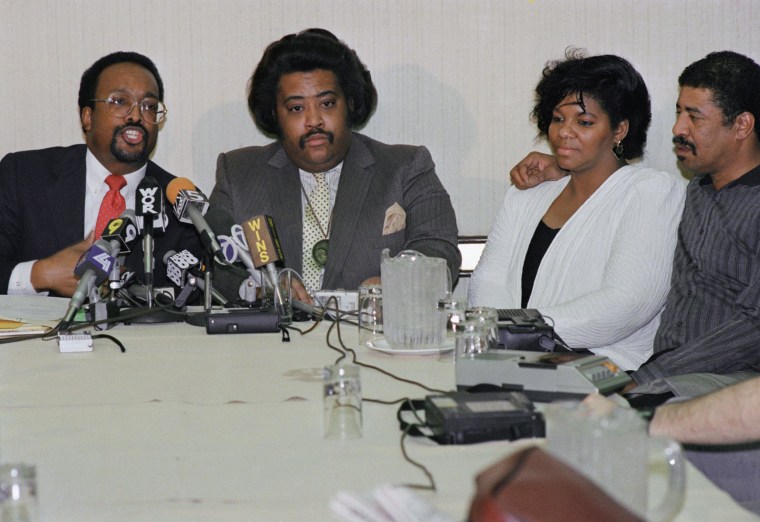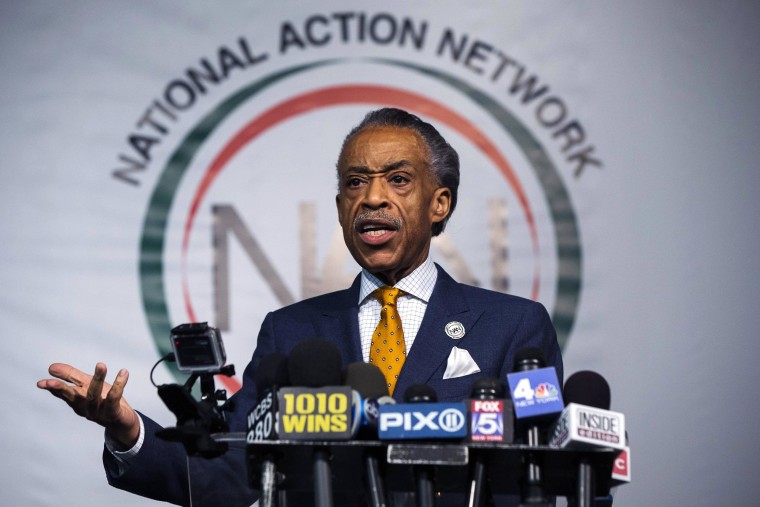Two axioms guide the lives of New York’s most enduring, and checkered, civic celebrities: you can always reinvent yourself, but you can never shed your past deeds.
No one embodies those competing forces like the Rev. Al Sharpton, the civil-rights firebrand and television host who has suddenly found himself answering questions about his purported work as an FBI informant in the 1980s, risking his life to help the feds catch mobsters while he was organizing acts of civil disobedience against the government and law enforcement.
Sharpton, 59, has spent years painstakingly reshaping his reputation, from a brash, pompadoured street activist to a polished friend of the president. Now he’s fighting to maintain it.
His years of cooperation with federal agents, described in an exhaustive report by The Smoking Gun, “may undermine his credibility, but he’s kind of a different person now, and these are different times,” said Leland Ware, a University of Delaware law professor and a civil-rights historian. “He at least has some kind of explanation for what he did.”
Sharpton has said that he went to authorities after getting death threats over his attempts to get blacks more work in the music industry. He’s also said he wanted to combat local drug trafficking.
In a combative press conference at his National Action Network headquarters in Harlem on Tuesday, Sharpton did not offer details of his informant work but said, “I did what was right.”
He added: “I was not, and am not, a rat. Because I wasn’t with the rats. I’m a cat. I chase rats.”
The brash and uncensored Sharpton of the 1980s and 1990s – the man behind the Tawana Brawley rape hoax who stoked blacks' mistrust of whites and made derogatory remarks about Jews and homosexuals -- may have criticized someone for working with the feds.

Sharpton, who hosts a daily program on MSNBC and has acted as an adviser to President Obama, has said he was simply trying to rid his community of crime. But the details included in The Smoking Gun raise questions.
Namely: Why did Sharpton feel compelled to work for the feds for so long?
The answer may lie in a surveillance video that shows the FBI trying to ensnare Sharpton in a cocaine deal. But there was never an attempt to prosecute him.
Another looming question: Why did the mobsters he secretly recorded seem so comfortable with him?
“The key isn’t that he talked to them. The key is that they talked to him,” said Eddie Hayes, a criminal defense attorney who worked some of the same racially charged cases that Sharpton got involved in. Both Hayes and Sharpton were fictionalized in the book and film “Bonfire of the Vanities.”
“His reputation,” Hayes said of Sharpton, “just got worse.”
But historian and writer Jelani Cobb said it was difficult to get worked up about the newly reported details, which included Sharpton meeting mobsters with a briefcase outfitted with a recording device.
Cobb noted that Sharpton has been accused of being a government informant for years. Sharpton himself acknowledged it after New York Newsday first reported it in 1988 in a multi-part, Pulitzer-nominated Newsday series in 1988, reported by a team that included Mike McAlary, Bob Drury, Robert Kessler and Richard Esposito, now Senior Executive Producer for Investigations at NBC News.
But Sharpton said he only helped authorities with information on drug dealing, and not, as Newsday reported, on black community groups.
This week’s revelations could be damaging to Sharpton, Cobb said. But they also could be construed as an attempt to unfairly smear a guy who’s part of the establishment now, who gives advice to the president.
Obama is scheduled to speak to Sharpton’s National Action Network’s convention in New York on Friday.
“If this was someone other than Al Sharpton, we’d say it was heroic that he had spoken out against Mafia bosses and risked his life while undercover,” Cobb said. “Even if he was being pressured into doing it by some other nefarious deed, we’d say that person has paid their debt.”
Then again, this is Al Sharpton, whose New York celebrity has evolved to the point where everyone has an opinion about him, and whose every transgression still draws headlines.
